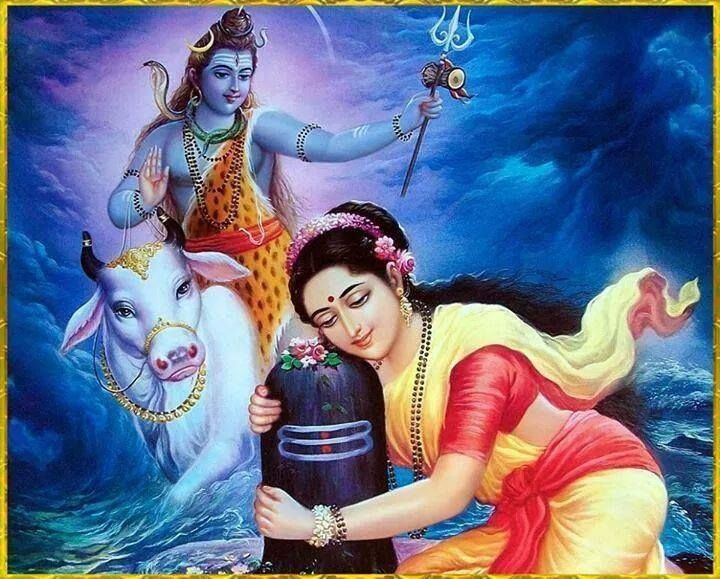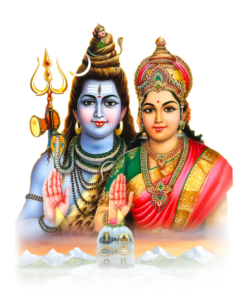No products in the cart.
Shivaratri is an auspicious and great festival of convergence of Shiva and Shakti. Masik Shivratri is celebrated every month on the Chaturdashi Tithi of Krishna Paksha.
Masik Shivaratri in month of Magha is known as Maha Shivaratri (which is observed once a year) according to Amavasyant School. Again, according to Purnimant School Masik Shivaratri in month of Phalguna is known as Maha Shivaratri. In both schools it is naming convention of lunar month which differs. However, both Purnimant and Amavasyant Schools, celebrate all Shivaratris including Maha Shivaratri on same day.
Like Maha Shivaratri, the day of Masik Shivratri is dedicated exclusively to the worship Lord Shiva and is observed with equally great devotion.
Shivratri Story
The belief behind Shivratri celebration is associated with the legend of Samudra manthan. It is said that on this day, Lord Shiva drank the deadly poison, which otherwise had the potential of destroying the whole world. Once the devas (Gods) and asuras (devils) were churning the ocean of milk. During the churning process, several things came out of the ocean. Among all those things were a pot of poison. The poison had the potential to destroy the universe, which frightened the devas (Gods) and asuras (devils). To seek help, they ran to Lord Shiva, the Lord of destruction. Lord Shiva, in order to save the universe from the deadly effect of poison, swallowed it. This act resulted in Lord Shiva’s throat turning blue, for which he earned the name Neelkanth. To celebrate this event of Lord Shiva, Shivaratri is celebrated.
Another belief is that Lord Shiva and Goddess Parvati were married on this day.
Masik Shivaratri Vrat Vidhi
Devotees, who want to observe Masik Shivaratri Vrat, can start it from Maha Shivaratri day and continue it for a year. It is believed that impossible and difficult task can be fulfilled by observing Masik Shivaratri Vrats by the grace of Lord Shiva. The devotees observe fast on Shivratri and are known to keep awake during the night and perform Shiva Puja at midnight. This is because Shivaratri Pujan is suggested during midnight which is known as Nishita Kaal and prevails for two Ghati. Nishita Kaal Muhurta is specially enlisted everywhere to perform Shiva Pujan for all Shivaratri fasts. The fast is broken the next morning by having the Prasad.
Apart from keeping a fast, they take bath in the water boiled with til seeds (sesame seeds). It is believed that bathing with this water washes away the bodily impurities. After wearing clean clothes, Temple of Lord Shiva is visited by the devotees to perform the rituals of the day. To invoke Lord’s blessings, Aarti is performed, Bhajans are sung and incense sticks are lighted and the devotees chant Om Namah Shivaya and worship the Lord throughout the day and the night.
For Shivratri puja, a three-tiered podium (raised platform) is built using wooden planks. The top plank represents heaven (Swarga), middle plank represents space (Antariksh) and the bottom plank signifies earth (Bhuloka). On the top plank i.e. the Swarga plank, eleven Kalash are kept which symbolizes the 11 forms (Avatars) of Lord Shiva. The Kalash are then decorated with bel leaves after which a coconut is placed on it, which represents the head of Lord Shiva.
Masik Shivaratri when falls on Tuesday becomes highly auspicious.
Masik Shivaratri Benefits
Masik Shivratri holds immense importance for all women. Unmarried women observe this fast and worship Lord Shiva to seek His divine blessings for a right match while married women observe this fast to maintain peace and tranquility in their married and family life.
As per Shiv Mahapuran, one who observes the fast with pure devotion and sincerity attains divine grace and blessings of Lord Shiva.
It is believed that observing fast on the day of Shivratri helps the devotees to get control over evils like jealousy, anger, and lust. Spending the day in worshiping Lord Shiva and performing rituals after every three hours abolishes all the sins and mistakes.
Masik Shivaratri 2020 dates
January 23, 2020, Thursday
Masik Shivaratri 00:02 to 00:53, Jan 24
Magha, Krishna Chaturdashi
Begins – 01:48, Jan 23
Ends – 02:17, Jan 24
February 21, 2020, Friday
Maha Shivaratri, Masik Shivaratri 00:05 to 00:54, Feb 22
Phalguna, Krishna Chaturdashi
Begins – 17:20, Feb 21
Ends – 19:02, Feb 22
March 22, 2020, Sunday
Masik Shivaratri 23:59 to 00:46, Mar 23
Chaitra, Krishna Chaturdashi
Begins – 10:07, Mar 22
Ends – 12:30, Mar 23
April 21, 2020, Tuesday
Masik Shivaratri 23:52 to 00:37, Apr 22
Vaishakha, Krishna Chaturdashi
Begins – 03:11, Apr 21
Ends – 05:37, Apr 22
May 20, 2020, Wednesday
Masik Shivaratri 23:50 to 00:34, May 21
Jyeshtha, Krishna Chaturdashi
Begins – 19:42, May 20
Ends – 21:35, May 21
June 19, 2020, Friday
Masik Shivaratri 23:56 to 00:39, Jun 20
Ashadha, Krishna Chaturdashi
Begins – 11:01, Jun 19
Ends – 11:52, Jun 20
July 19, 2020, Sunday
Masik Shivaratri 00:00 to 00:10, Jul 20
Shravana, Krishna Chaturdashi
Begins – 00:41, Jul 19
Ends – 00:10, Jul 20
August 17, 2020, Monday
Masik Shivaratri 23:57 to 00:42, Aug 18
Bhadrapada, Krishna Chaturdashi
Begins – 12:35, Aug 17
Ends – 10:39, Aug 18
September 15, 2020, Tuesday
Masik Shivaratri 23:47 to 00:34, Sep 16
Ashwina, Krishna Chaturdashi
Begins – 23:00, Sep 15
Ends – 19:56, Sep 16
October 15, 2020, Thursday
Adhika Masik Shivaratri 23:37 to 00:26, Oct 16
Kartika, Krishna Chaturdashi
Begins – 08:33, Oct 15
Ends – 04:52, Oct 16
November 13, 2020, Friday
Masik Shivaratri 23:35 to 00:26, Nov 14
Kartika, Krishna Chaturdashi
Begins – 17:59, Nov 13
Ends – 14:17, Nov 14
December 13, 2020, Sunday
Masik Shivaratri 23:45 to 00:36, Dec 14
Margashirsha, Krishna Chaturdashi
Begins – 03:52, Dec 13
Ends – 00:44, Dec 14







